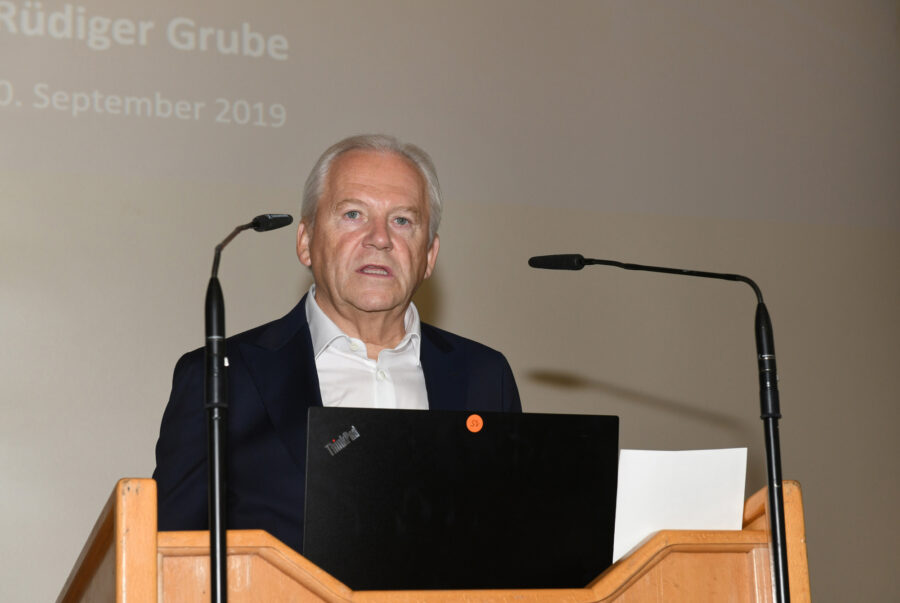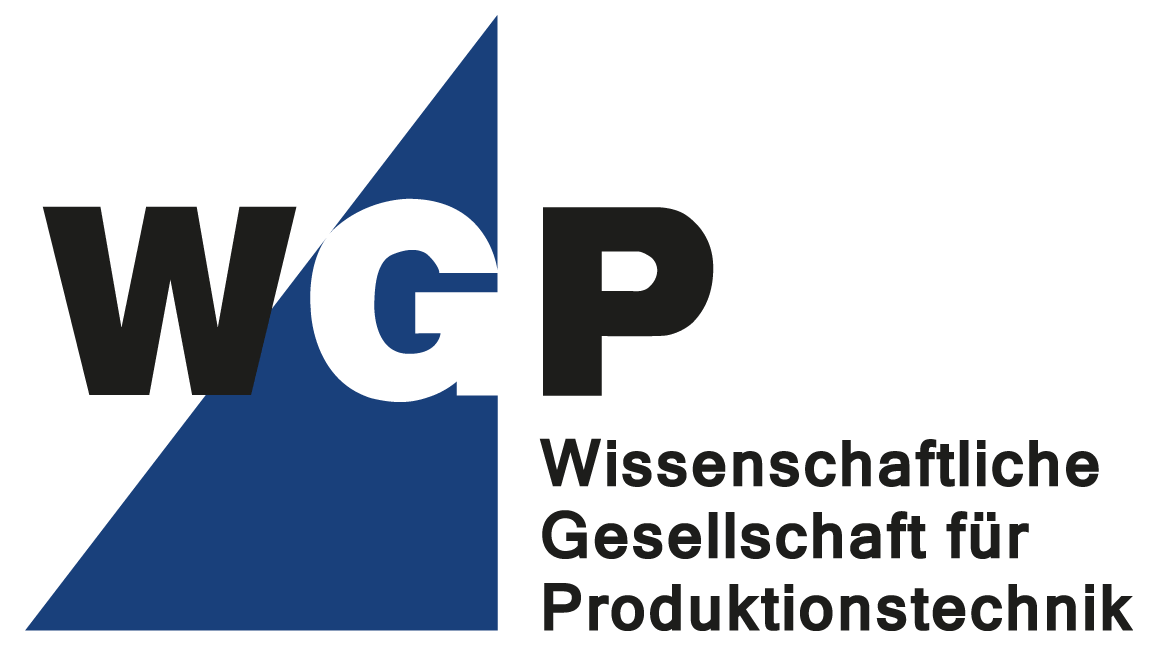
Hamburg, 07 October 2019 – The WGP, the association of leading production technology professors in Germany, has shown new ways for a more environmentally friendly industry at its annual congress. “We want local production that conserves energy and resources,” emphasized Prof. Jens Wulfsberg, Head of the Laboratory of Manufacturing Engineering (LaFT) at Helmut Schmidt University in Hamburg and co-organizer of the congress. “For this we need the support of the politicians and a leap thinking with the people. But then we can completely restructure the industry. Ideas and technologies for this already exist”. Prof. Rüdiger Grube, former CEO of Deutsche Bahn AG and keynote speaker, also saw the necessity of rethinking one’s own actions on a daily basis. “The future is not fate and changes are not a threat, but the engine for new solutions. Changes, such as the drastic reduction of the complexity of machine tools and human-independent AI-supported product design based on nature, are two examples of possible ways out.
The motto of the annual congress of the Scientific Society for Production Engineering from 30.09. to 02.10. in Hamburg was “Production at the limits – keeping ahead, securing the future! This reflects the professors’ claim to maintain Germany as a leading business location, but at the same time their willingness to initiate both necessary and drastic changes in our economy. “The production research shifts permanently the borders of the feasible and advances regarding methodology, resources employment or Interdisziplinaritt again and again into ranges held impossible , warned Wulfsberg. “But we must consider, where the search for the new borders leads us, which borders we must cross and which we do not want to cross.
Voluntary initiatives of the industry are not sufficient
The Global Climate Action Summit calculated that 34 percent of CO2 emissions come from industry. Nevertheless, in its recently presented climate package, the German government wants to achieve CO2 reduction in industry largely only through more incentives than through restrictive measures. But the researchers warn. “We must not shut ourselves off from knowledge about climate change, microplastics and other threats to the planet, our health and our prosperity,” Wulfsberg demands. Even without political guidelines, there are already countless initiatives from industry today to face up to responsibility. Bosch and Siemens are just two of many pioneers in this field. But the measures taken to ensure the CO2 neutrality of individual factories are not sufficient. “We need leapfrog innovations, recycling management, production within cities, and production methods that still seem impossible today on a broad scale. It was precisely such new production methods that the annual congress drew attention to.
Let products grow like trees
Lin Kayser, programmer, co-founder and CEO of Hyperganic Technologies AG, is convinced that “in 20 to 30 years we will not recognize our world”. He showed how completely new workpieces can be produced using algorithms, 3D printing and artificial intelligence, if one follows nature’s construction principles. “Why haven’t we got where we all want to go yet,” Kayser asked. In principle, every human being wants a life in harmony with nature, which ensures health and prosperity for all people worldwide. From his point of view, one method is to have computer codes determine the origin of products in industrial production – just as DNA determines the phenotype of a tree. This makes post-processing and physical optimization unnecessary and saves resources and energy. In addition, completely new products and functionalities are possible that are not even conceivable today. The fact that today’s products are manufactured according to design and not according to rules means that the experience gained by the engineers limits the development of completely new shapes and products. “The more man-made rules a workpiece is subject to, the less likely it is to create something completely new,” says Kayser, who has already developed groundbreaking innovations. “We create a kind of machine intuition.” In Hamburg, Kayser presented a completely new component of an engine that was developed using algorithms alone and optimized with the help of simulations. “The workpiece has grown with its computer code like a tree through its DNA.” Only that the evolution of its current appearance did not take millions of years, but a time defined by man. It can take two years or just a few hours. The result is then more or less mature. But of course this form of production must not ignore social issues such as future jobs.
Local production possible thanks to small machine tools
But there are other approaches to revolutionizing production. “To enable local urban production, for example, we have to move away from highly complicated machines,” warned Wulfsberg. “The trend towards ever more complex machining centers also brings with it major disadvantages. Highly trained employees are required for operation, the machines require a complex environment and have high demands on the infrastructure. All this restricts their possible applications outside a typical industrial environment, and only individual companies benefit from the added value. Wulfsberg therefore pleaded for small “elementary machines” that take on exactly one machining task, get by without controls and are very easy to operate. Depending on which product is to be produced, different elementary machines can be connected in series in modules. “They are quasi hardware apps that extend the process chain or the functionalities depending on the product to be manufactured,” explains the Hamburg professor. The goal: machine tools for everyone and everywhere that enable production directly on site, without long transport routes. It is conceivable, for example, that plastic bottles from the collection container in the discount store could be recycled by downstream machines and then converted into new products on site using 3D printing processes. Producers and consumers thus move closer together and develop an understanding of the respective necessities and needs for resource-conserving and sustainable production.
Thanks to Wulfsberg’s initiative, Hamburg has been the only German city to become a member of the Fab City Network a few weeks ago. The participating cities have set themselves the goal of producing everything they need locally in just under 35 years, thus establishing their own value-added chain and making themselves economically independent. Cities such as Mexico City, Paris, Seoul and Shenzen are already members. The principle of making wealth, education and health possible through own production also works for every village in Africa or elsewhere.
Picture 1: WGP Annual Congress Prof. Rüdiger Grube, former DB Chairman of the Board, Quelle: HSU-HH, Ulrike Schröder
Picture 2: Prof. Jens Wulfsberg, Head of the Laboratory for Manufacturing Technology (LaFT) at Helmut Schmidt University Hamburg, Source: HSU-HH, Ulrike Schröder
Further Information:
